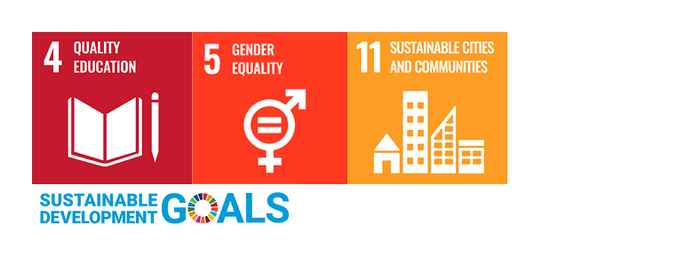Honoursmodule: Loving the (Global) City
Lecturer(s)
Michiel Baas
Entry requirements
Second and Third year bachelor students participating in an honours programme.
Recommended prior knowledge
None.
Learning Objectives
At the end of the course the student can:
- Reflect on the complex layering and entanglement of relationships that shape urban life;
- Cohesively argue across a wide spectrum of academic insights with regards to cities;
- Make use of this knowledge to engage critically with related urban questions and issues.
Content
While love and friendship are important aspects of the human life course, they are topics that are often left out of consideration when social scientists and policy makers try to determine what makes our cities “good” or “liveable.” One social factor that distinguishes cities from suburban or rural areas is the greater opportunity for turning strangers into friends or lovers, and therefore expanding beyond the most basic notions of family and clan. In this course we will explore the role of love and friendship in making the city more liveable, at the personal, transpersonal, social, economic and political levels of urban life. Using Amsterdam and nearby cities as our laboratory, we will try to understand the following: What is friendliness, and (how) is it important in daily life? Under what circumstances do strangers turn into friends or lovers? What is the role of friendship in everyday urban experience? (How) Can we design more loving cities?
We will address these questions using a transdisciplinary approach, drawing on theory and method from philosophy, anthropology, history, sociology, psychology, geography, planning, design and art. We will develop an empirical group project, investigating friendship from the perspective of different kinds of people for whom making new friends is important such as, migrants, elderly people, military veterans, teenagers, etc. Our studies will take us out into the city to locate sites of friendship: sport clubs and meet-up groups, concert halls and cafes, speed-dating events and knitting circles, and other places we identify as important for making strangers into friends.
Teaching method
This course is run as a research seminar. Students are expected to read closely, bring reading notes and questions to each meetings, and set the agenda for class discussion by active participation. Students are also expected to work in teams, collaborate, share skills, and develop strong research projects. Field trips and field work are mandatory in this course.
Assessment:
Final Paper and assignments.
Min/max participants
max. 25
Schedule
The schedule will be available on Datanose
Registration
Registration is possible for 2nd year (or higher) students participating in an Honours programme. The registration for the Honours courses will start on June 1, 10 am - June 4, 11 pm, You can register through the online registration form that will appear on Honoursmodules IIS (registration is NOT through SIS)
Placement will be at random and students will be informered about their placement in the week of June 21.
There is NO guarantee for placement if you register AFTER June 4, so make sure you apply on time!
For questions about registration please email to: Honours-iis@uva.nl
SDGs in education
The IIS strives to reflect current societal issues and challenges in our elective courses, honours modules and degree programmes, and attempts to integrate the following Sustainable Development Goals (SDGs) in this course. For more information about these goals, please visit the SDGs website

- Mode
- Honours programme
- Credits
- 6 ECTS,
- Language of instruction
- English
- Conditions for admission
- Starts in
- September